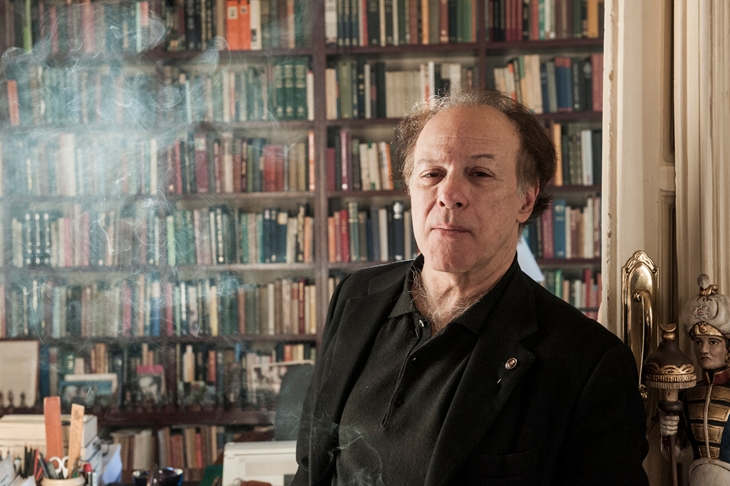A novel by Javier Marías, as his millions of readers know, is never what it purports to be. Spain’s most eminent novelist, Nobel laureate in waiting, translated into more than 40 languages, Marías likes to play with existential ideas. The Infatuations was ostensibly a murder mystery; Thus Bad Begins chronicled a loss of innocence. But the stories are always interwoven with deliberations on truth, morality, deceit and the impossibility of knowing one another, with side trips through literature and history. Marías’s closeness to Cervantes, Proust and, above all, Sterne is no secret. Shandyesque digressions are among the incidental pleasures faithful readers have come to expect.
Berta Isla is set largely in Madrid and Oxford — as are many Marías stories, most notably his great trilogy Your Face Tomorrow. We are again in the world of espionage, ambiguity and betrayal of various sorts. Two teenagers in late 1960s Madrid, Berta and Tomàs (or Tom — he’s half English) plan to marry after his graduation from Oxford. But Tom drifts into a casual affair, and when the girl is murdered, finds himself the chief suspect. Mysteriously, he’s offered a way out of the catastrophic predicament: strings are pulled and he’s whisked from harm’s way. But there’s a price to pay, one that will change everything. Tomàs returns to Madrid trapped in a double life of secrecy and lies, an unwilling recruit into the shadowy activities of ‘defence of the realm’.
Berta, now his wife, painfully learns to accept his unexplained absences — until one day he fails to return. He may or may not be dead. Officially, she is a widow, but 12 years later Tomàs reappears, much changed, and unable to explain anything. Can she accept him?
Marías has said that he feels more at ease with his masculine characters; there is a hint of the male gaze in his work, possibly misogyny? Not this time: Berta, the desolate wife, is the heart of the story; her first-person narrative eloquently occupies the bulk of the 532 pages. The novel reintroduces familiar characters: Oxford dons — some fictional, some real, all very donnish — from Your Face Tomorrow. Notably, Bertram Tupra, arch puller of strings, blood-freezingly vicious, is back, but this time he is merely rebarbative.
Berta Isla has many of the master’s signature preoccupations — identity, thwarted communication, the power of poetry. Here’s Eliot, from ‘Prufrock’ to ‘Little Gidding’, and Shakespeare, as always: a marital bedside chat turns into a mini-tutorial on a scene from Henry V (Harry mingling unrecognised with his men the night before Agincourt seen as a spy, an infiltrator, a touch of Tomàs in his secret life). Throughout there’s a sense of an authorial mind dwelling on events and consequences: Belfast and the IRA, the Falklands, Russia, Berlin and Spain in the dying days of Franco. The elegant translation, once again by Margaret Jull Costa, is alive to every nuance.
An ironic twist reveals a monstrous deceit, but one not difficult to guess. I missed the wit and audacity of the earlier novels; the pace is leisurely, and after a marvellously tense opening sequence as the jaws of a trap slowly close on Tomàs, there’s little sense of danger. And his revelation of the life he has been leading seems anticlimactic. But we return to Berta for the last word; a complex, emotionally torn character, she evolves and matures, and her intimate story carries the book.






Comments